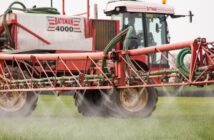Farmers need to give the complex regulatory landscape the same level of attention they apply to animal and crop diseases, says Charles Mayson of CXCS.
The proliferation of legislation – and the potential cost of failing to comply – means farmers should adopt a proactive risk-management strategy towards the threats it brings, so Mr Mayson is warning farmers at Cereals 2019.
“Falling short of the requirements in terms of BPS cross-compliance or farm assurance can cost farmers dearly in terms of fines and lost customers, so a clear strategy for managing and minimising this risk is needed, just as farmers have towards other risks,” he says.
“Many people are, understandably, hugely worried about failing to comply with all the rules, but it’s not enough to simply worry about it. Even trying to do the right thing can be insufficient. You can’t merely say or even know you’ve complied, you’ve got to be able to prove it, too.
“Farmers have always managed businesses around unpredictable weather, in the face of diseases that could devastate margins, and where events such as floods and fires could hit them. But today’s globalised world – where prices and costs can fluctuate wildly – means they are much more aware of the need to manage risk.”
When it comes to legislative compliance, some farmers opt to familiarise themselves with all the rules and complete the paperwork themselves – and do it brilliantly, says Mr Mayson. Others choose to get professional help.
“Either way, it’s about acknowledging, identifying and mitigating a very real risk,” says Mr Mayson, who founded CXCS, the official health and safety partner of the Cereals Event 2019.
“It’s not enough to simply hope you won’t fall foul of the regulations. You need to have a management policy that ensures it doesn’t happen.”
When it comes to health and safety, it’s important to comply with the legislation to avoid fines and prosecution – but, more importantly, getting that right means you’ll be keeping yourself, your family and those who work on – and visit – your farm safe, points out Mr Mayson.
“The injury and fatality rate in agriculture has been far too high for far too long. We need to bring this grisly figure down.
“Overall, those who think Brexit will herald a bonfire of red tape are mistaken,” suggests Mr Mayson. “If anything, regulations will get tougher.
“Most farmers understand the need for rules if UK agriculture is to maintain its world-leading position in terms of delivering safe food and a healthy environment, but the legislation desperately needs to be simplified and streamlined.”




